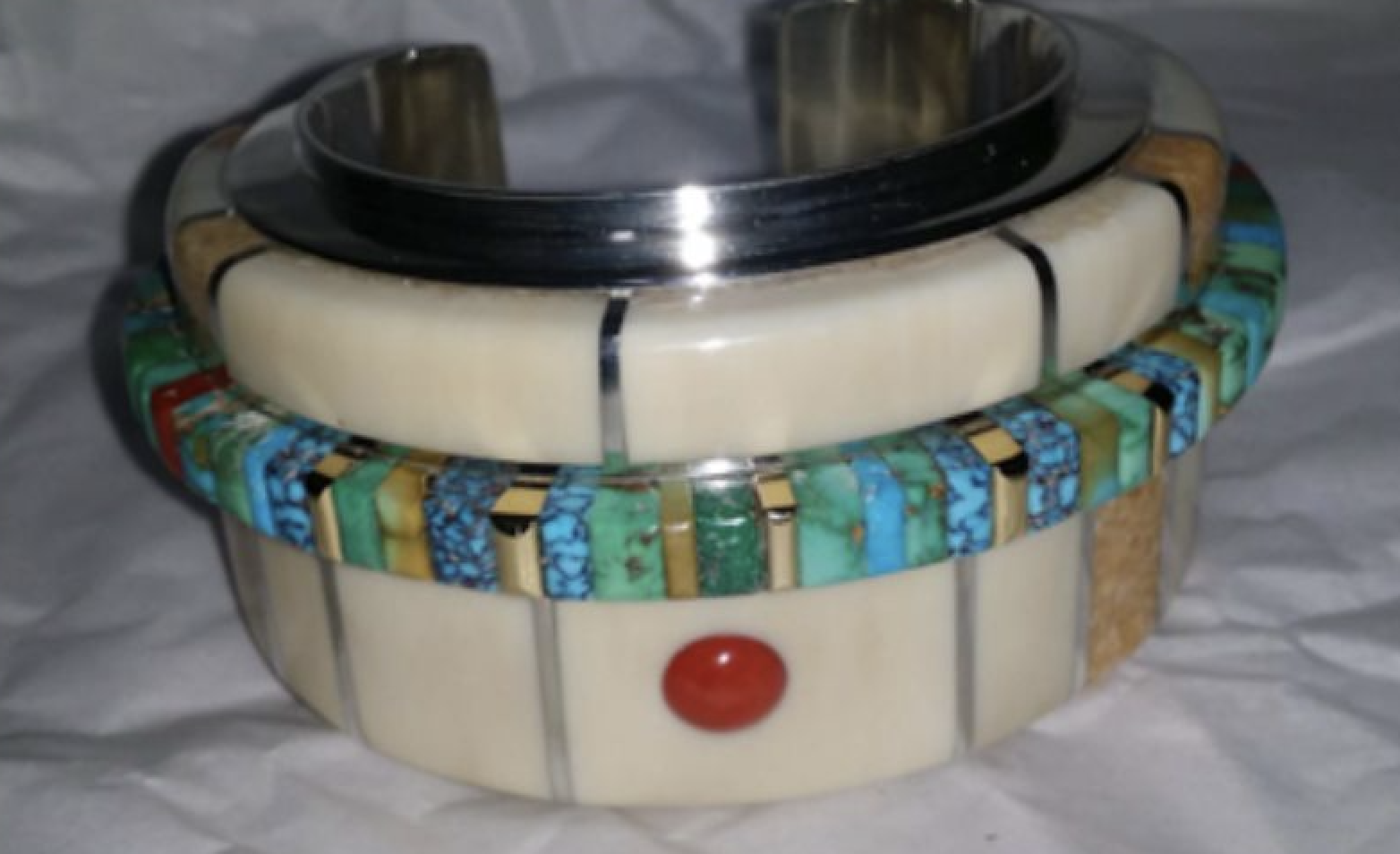
- Details
- By Native News Online Staff
A federal jury in New Mexico has convicted Robert Haack on multiple counts of fraud and violations of the Indian Arts and Crafts Act (IACA) for selling counterfeit jewelry falsely attributed to famed Hopi jeweler Charles Loloma.
The verdict came after a four-day trial and four hours of jury deliberation. For years, Haack made counterfeit Loloma jewelry in his California home and sold it on eBay for thousands of dollars per piece.
Charles Loloma was known for revolutionizing Native American jewelry by blending traditional Hopi designs with modern materials such as gold, coral, and turquoise. Today, his pieces are displayed in prominent museums and continue to be highly sought after by collectors.
The scheme came to light when the U.S. Fish and Wildlife Service launched an undercover investigation. Agents purchased two pieces of jewelry from Haack and had them examined by experts, including Loloma’s niece, Verma Nequatewa, confirming that the pieces were fake.
A search of Haack’s home uncovered tools and materials used to create fake jewelry. Investigators found unfinished pieces in Loloma’s style, engraving tools hidden in a boot, design sketches, and metal shards with practice versions of Loloma’s signature.
Authorities estimate that Haack made over $400,000 selling fake jewelry before he was caught.
The IACA was enacted in 1935 to protect Native American artists and consumers from fraudulent sales of fake Indigneous art. The law makes it illegal to falsely market products as Native American-made unless they are created by a federally recognized tribal member or a certified artisan.
Amendments to the act in 1990 increased the penalties for violations, ensuring stricter enforcement. Under IACA, first-time offenders can be fined up to $250,000 and face up to five years in prison, while businesses caught violating the act can face fines up to $1 million.
“Robert Haack’s counterfeit operation significantly impacted the Native American art and craft marketplace,” Doug Ault, Assistant Director of the U.S. Fish and Wildlife Service Office of Law Enforcement, said in a press release. “Native American art fraud is a serious crime that exploits consumers and severely undermines the economic and cultural livelihood of Native American artists and Tribes.
Haack now faces up to 20 years in federal prison for wire fraud, mail fraud, and violating the IACA. His sentencing date has not yet been set, but he remains under court-imposed release conditions.
The prosecution was led by the U.S. Attorney’s Office for the District of New Mexico, with investigations by the U.S. Fish and Wildlife Service and the Indian Arts and Crafts Board.
“Native American art fraud is a serious crime that exploits consumers and severely undermines the economic and cultural livelihood of Native American artists and tribes,” Ault said in a press release. “We thank our partners at the U.S. Department of Justice and the Indian Arts and Crafts Board for their assistance with this investigation.”
More Stories Like This
Native News Weekly (August 25, 2024): D.C. BriefsUS Presidents in Their Own Words Concerning American Indians
Federal Judge Orders ICE to Halt Use of Pepper Spray, Arrests of Peaceful Protesters in Twin Cities
Tunica-Biloxi Cultural Leader John D. Barbry Walks On
Next on Native Bidaské: Federal ICE Activity in Minneapolis: Ruth Buffalo’s Perspective
Help us defend tribal sovereignty.
At Native News Online, our mission is rooted in telling the stories that strengthen sovereignty and uplift Indigenous voices — not just at year’s end, but every single day.
Because of your generosity last year, we were able to keep our reporters on the ground in tribal communities, at national gatherings and in the halls of Congress — covering the issues that matter most to Indian Country: sovereignty, culture, education, health and economic opportunity.
That support sustained us through a tough year in 2025. Now, as we look to the year ahead, we need your help right now to ensure warrior journalism remains strong — reporting that defends tribal sovereignty, amplifies Native truth, and holds power accountable.
 The stakes couldn't be higher. Your support keeps Native voices heard, Native stories told and Native sovereignty defended.
The stakes couldn't be higher. Your support keeps Native voices heard, Native stories told and Native sovereignty defended.
Stand with Warrior Journalism today.
Levi Rickert (Potawatomi), Editor & Publisher


